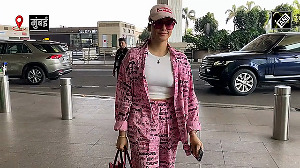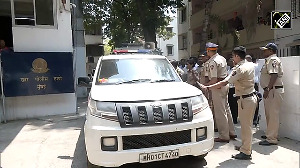With Sebi allowing a combined demat and trading account and simplified address proof, retail investors will find the process more convenient
 First-time investors who want to trade in equity markets will now be able to do so more easily. Soon, they will be able to open a demat and trading account by filling a simplified one-page account opening form (AOF) called ‘SARAL AOF’.
First-time investors who want to trade in equity markets will now be able to do so more easily. Soon, they will be able to open a demat and trading account by filling a simplified one-page account opening form (AOF) called ‘SARAL AOF’.
“It has been done with a view to facilitating the entry of new investors and encourage them to participate in the cash market including the disinvestment of PSUs (public sector units) through the OFS (offer for sale) process. This simplified form will be separately available with intermediaries and can also be downloaded from the websites of exchanges and depositories,” said the Securities and Exchange Board of India (Sebi) in a circular on Wednesday. Since the account can be opened with one form, the time taken, too, will be much lesser than in the case of a full-fledged trading account.
To participate in an OFS, investors will have to open a trading account because they will have to place bids and unlike an initial public offering or a follow-on offer, no forms are issued to apply for the bids. The advantages of SARAL AOF are the combined form for demat and trading accounts and the doing away of the know-your-customer (KYC) requirement of address proof, says Hiren Dhakan, associate fund & wealth manager at Bonanza Portfolio.
“Investors who could not submit address proof used to find it difficult to open trading accounts. Now, investors can submit a self-declaration initially and open the account. They can submit address proof later on,'' says Dhakan. This account is available only for individual investors, and not for Hindu Undivided Families, he adds.
To open a typical demat and broking account with a full-fledged broker, the form requires 20-odd signatures from investors, depending on what facilities investors sign up for. It varies from brokerage to brokerage. This also includes KYC requirements.
Compared to this, the SARAL AOF is much simpler. However, the facilities are restricted. Investors will be able to trade only in the cash segment and not in derivatives such as futures and options or do margin trading. They will also not be able to do online trading or sign ‘power of attorneys’ or (POAs) with brokers.
For internet trading, a separate agreement between the investor and brokerage is required, saying that the investor is aware of the risks of online trading. A POA is required for the settlement, too. Similarly, for margin and derivative trading too, a POA is required between the broker and investor.
However, Sebi has said that individual investors who open account through SARAL AOF will also have the option to obtain other facilities whenever they require, on furnishing of additional information according to regulations.
Ideally, retail and first-time investors should stay away from derivative markets because it is highly leveraged and they could lose money, says B Gopakumar, executive vice-president and head of broking at Kotak Securities. “Last year, Sebi had reduced some of the signatures required for demat and trading forms. But the SARAL AOF is even simpler. Most of the time, address proof is an issue because the leave & licence agreement is not accepted as address proof. This will make KYC much easier,” he says.
The upcoming disinvestment programme of the government will allocate a certain percentage of the share for retail investors. The SARAL AOF will provide an incentive for retail investors to take part in the disinvestment. "Since retail investors have easy access to information about stocks through media and social media, many of them would be comfortable trading on their own,'' adds Gopakumar. The Rajiv Gandhi Equity Saving Scheme (RGESS) also targeted first-time equity investors by offering a tax incentive. But it did not take off.
“In case of RGESS, there were too many conditions. Here it is not so. It is a simplified the procedure for account opening. So, it should help retail investors,” says Gopakumar.










 © 2025
© 2025